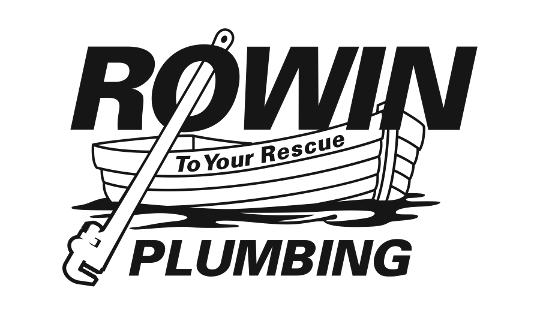Most people wouldn’t think about their home plumbing systems until something goes wrong. However, knowing what kind of pipes that were used in your plumbing can help you. Prevent problems before they lead to costly repair bills. CPVC or chlorinated polyvinyl chloride pipes are becoming a problem for homeowners across the state. They tend to become brittle and crack over time. Not only that, but CPVC pipes have limited longevity.
Due to these reasons, they will start leaking, and those leaks may go undetected until significant damage has occurred. Having a reliable plumber look at the condition of your plumbing pipes sometimes can help you identify these risks and mitigate them before they become hefty repair problems.
Problems with CPVC Pipes
Genova Products was the first company to create CPVC plumbing products. These pipes provided an inexpensive alternative to several other piping materials and reduced the degrading effects of acidic waters on the longevity of pipe. Although CPVC pipes are cheap, they have several problems including:
·CPVC pipes are generally connected with glue. Since glue can quickly worsen over time, CPVC pipes are more likely to shift and start leaking.
·When CPVC pipes are burned, they release toxic fumes. This can present significant risks in residential fires.
·As CPVC pipes age, they become more brittle and can shatter or crack with a slight impact. This can lead to severe problems and significant repair work.
·Hot outdoor temperatures can accelerate the deterioration and breakdown of these pipes. Chlorinated water has the same worsen effect on CPVC pipes.
· The probability of a CPVC pipe breaking in freezing temperature is higher than that of pipes made from other materials.
·CPVC pipes aren’t ideal for outdoor plumbing since direct exposure to UV rays can cause the pipe materials to degrade
CPVC Pipes Increase the Risks for Homeowners
Experts say that under optimal conditions, pipes made from CPVC are expected to last for about 50-75 years. However, many homeowners report seeing cracks in the CPVC pipes installed at their properties after only 14 years. When those cracks occur in crawl spaces or behind walls, they can increase the risks for homeowners.
·Damage to Flooring and Walls
When water leaks from the CPVC plumbing pipes, the excess moisture can collect on the walls, flooring, and other fixtures. This can lead to water damage and significant restoration work if the problem isn’t addressed immediately.
·Mold and Mildew Buildup
Small leaks in CPVC pipes are a serious problem because the leaking water can lead to mold and mildew buildup. Mold and mildew will eat through the drywall and other building materials. The structural damage can be so significant that it might lead to ceiling tile collapse.
·Increased Risk of Fire
If water leaking from CPVC pipes reaches electrical wiring, it can cause a fire.
Other Materials Can Provide Greater Reliability
Copper pipes are regarded as the standard for longevity and excellence in the entire plumbing industry. Even though they can experience some issues in areas where the acidic content of water is very high, they are still a better option than CPVC pipes. If cost isn’t an issue, most plumbers recommend copper pipes over CPVC for plumbing needs.
PEX pipes or cross-linked polyethylene is gaining popularity these days thanks to the combination of longevity, affordable price, and flexibility. They are available in a wide variety of lengths, ranging from short 1-ft pieces – for small repairs – to huge rolls that are over 50-ft long. The diameter of these pipes can vary between 3/8-inch and 1-inch. Color-coding on the pipe is used to identify what a specific pipe is used.
PEX pipes can usually be fed through existing fixtures and holes to reduce the amount of drilling required for a re-piping project. furthermore, these pipes come with a warranty that might be as long as 25 years. Some other advantages of PEX pipes include:
·No soldering should be used for installing PEX pipes
·PEX expands, which is why it is more resistant to cracking due to freezing.
·PEX, unlike copper and steel pipes, doesn’t corrode. Corrosion can lead to leaks as well as contamination of water supply, so it is a big plus.
·Water doesn’t make a lot of noise when flowing through PEX pipes.
·Color-coding makes it easier to distinguish between cold and hot supply lines.
·PEX can also be connected to installed metal supply water lines with correct fittings already
Some manufacturers of PEX pipes allow homeowners to claim damages instead of going through their insurance coverage directly. This alone is a strong recommendation for installing PEX pipes over CPVC pipes.
Final Thoughts
If you aren’t sure what kind of pipe is used in your home’s plumbing system, hire a professional from Rowin Plumbing to examine the pipes. Our experienced technician will inspect your plumbing systems and evaluate the condition of your pipes. If CPVC pipes are used and they are in poor condition, we would recommend you to replace them with copper or PEX pipes. You don’t want to take a risk with CPVC pipes, as they are prone to leaking and can cause significant damage to your home.
To hire an expert from Rowin Plumbing for the inspection and evaluation of your home’s plumbing system, call us at 661 252 5757
